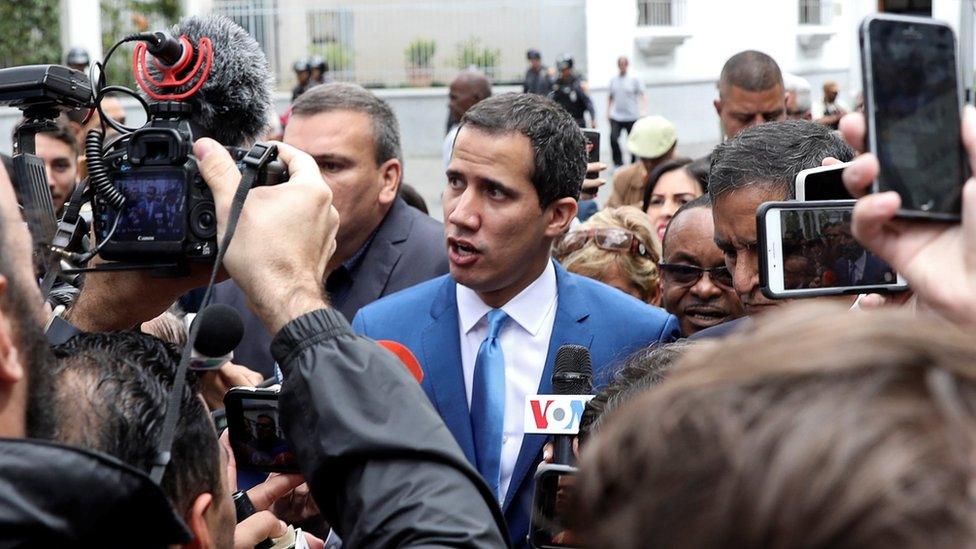Venezuela opposition convoy attacked outside parliament
- Published
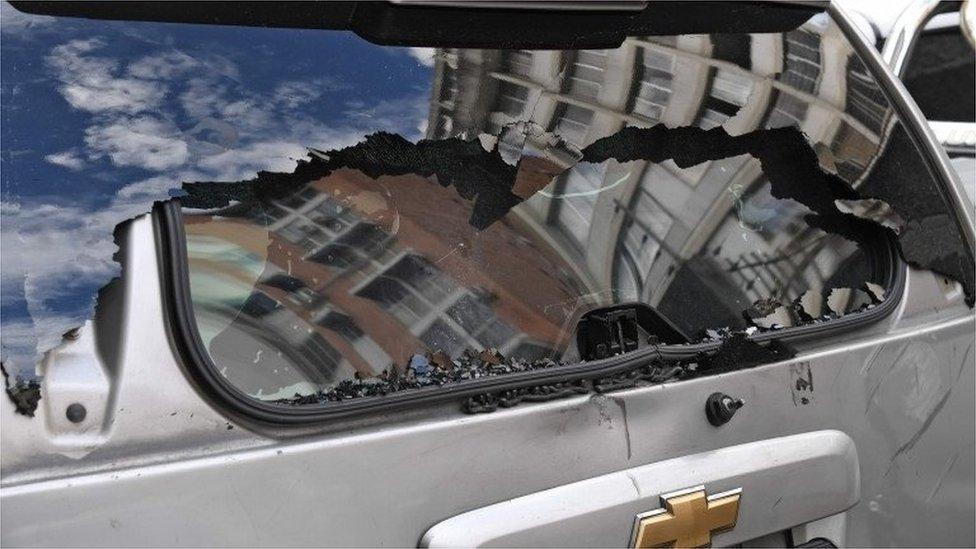
The rear window of one of the cars was shattered
Pro-government groups in Venezuela have attacked a convoy of opposition lawmakers outside the parliament building in central Caracas.
Opposition leader Juan Guaidó said the violence had forced him to transfer a planned meeting to a building on the outskirts of the city.
Video footage from inside one car showed supporters of President Nicolás Maduro throwing a traffic cone and a stone that broke one of the windows.
Local media reported shots being fired.
During his state of the nation address on Tuesday, Mr Maduro accused Mr Guaidó - the Speaker of the National Assembly, of helping the US to wage an economic war on Venezuela.
The attack on the convoy comes eight days after Mr Guaidó and 100 fellow opposition lawmakers pushed past police to enter the National Assembly.
It is the latest escalation in Venezuela's political crisis.
What happened?
A group of opposition members of the National Assembly were being driven to the legislative palace in the centre of the capital, Caracas, when their cars were set upon by a group of government supporters.
Footage published on the National Assembly Twitter account shows a man shattering the rear window of one of the cars with a traffic cone.
Allow X content?
This article contains content provided by X. We ask for your permission before anything is loaded, as they may be using cookies and other technologies. You may want to read X’s cookie policy, external and privacy policy, external before accepting. To view this content choose ‘accept and continue’.
Opposition politician Angelo Palmeri said the cars were also hit with metal bars and bats, and his colleague Delsa Solórzano said the pro-government "mob" had opened fire on the car she was in.
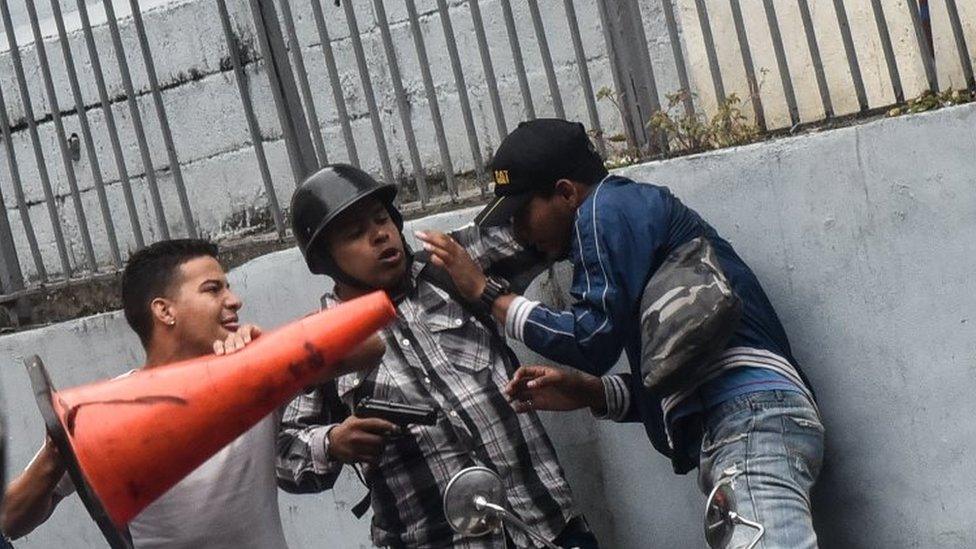
Some of those involved in the violence were armed
"This was done while the National Guard watched complacently," Mr Palmeri said. He added that he thought a trap had been set for him and his fellow lawmakers.
"I was surprised to find that the National Guard waved us through several checkpoints, then we were surrounded by this mob and I understood why we'd been let through," he said.
What's the background?
The National Assembly is one of the few remaining institutions in Venezuela which is not controlled by the governing PSUV party.
On 23 January 2019, Mr Guaidó, declared himself acting president of Venezuela, arguing that the election which returned Mr Maduro to power in 2018 had been fraudulent.
Mr Guaidó and his supporters claimed that the presidency was therefore vacant and invoked an article in the constitution which calls for the Speaker to step in as president.
Mr Guaidó declared himself acting president and was quickly recognised as Venezuela's legitimate leader by more than 50 countries, including the US, the UK and many Latin American nations.
Since then, Mr Guaidó and Mr Maduro have been at loggerheads but the latter has maintained a firm grip on the government thanks to the support of the armed forces.
Earlier this month Mr Guaidó, who was facing an end to his term as Speaker on 5 January, went to the National Assembly to stand for re-election but was denied entry by the National Guard.
They pushed him back with shields as he tried to clamber over the railings surrounding the building.
Juan Guaidó tried to climb over a fence to enter the National Assembly building
Mr Guaidó moved the session to another location where about 100 lawmakers re-elected him as Speaker.
Two days later, he and the lawmakers loyal to him managed to gain entry to the National Assembly building by pushing through the National Guard security cordon, and Mr Guaidó was sworn in as Speaker and also renewed his oath as acting president.
President Maduro in the meantime has recognised a dissident lawmaker, Luis Parra, as Speaker.
What does it all mean?
The scenes on 5 January, when Mr Guaidó was prevented from entering the National Assembly, were widely seen as showing the lack of power the opposition leader has over the National Guard.
However his success in getting into the building two days later has been hailed as a success for the opposition.
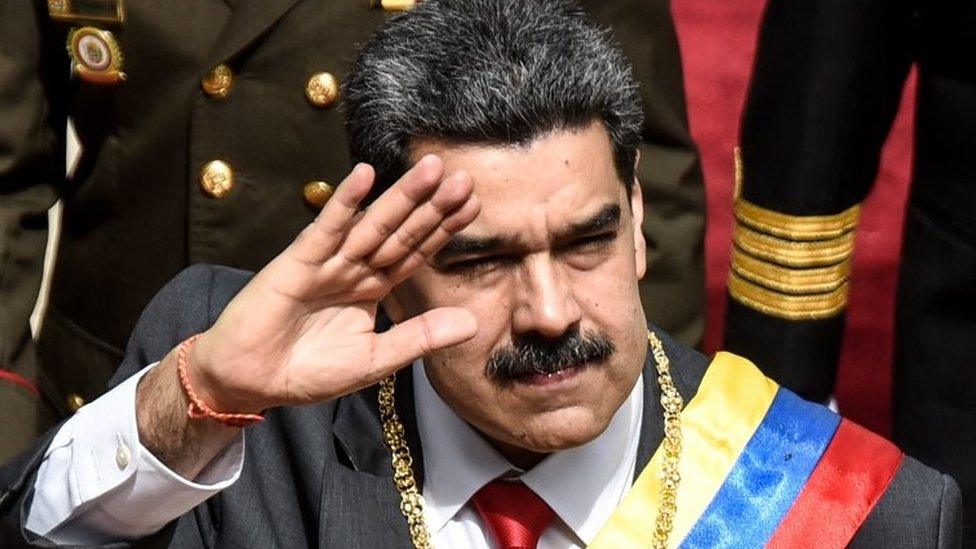
President Maduro has remained in power and continues to enjoy the support of the armed forces
At an international level, footage of armed guards barring elected lawmakers from entering the legislative palace has shocked many democratic governments, which have reiterated their support for Mr Guaidó.
While some dissident lawmakers such as Mr Parra appear to have switched sides and are now working with government lawmakers, the 100 who back Mr Guaidó appear more united than before.
However, some supporters fear that Mr Guaidó and the opposition may be worn down by the harassment they are experiencing, which is distracting them from their ultimate aim of dislodging Mr Maduro from power.
What next?
Mr Guaidó has moved Wednesday's session to an open air theatre in El Hatillo, an opposition stronghold in Caracas.
Meanwhile, the National Constituent Assembly, a body created by President Maduro and exclusively made up by his supporters, is meeting in the legislative palace in a show of force by the government.
The stand-off between the two looks unlikely to end in the short term.
Talks between opposition and government representatives last year floundered after a few months.
- Published7 January 2020
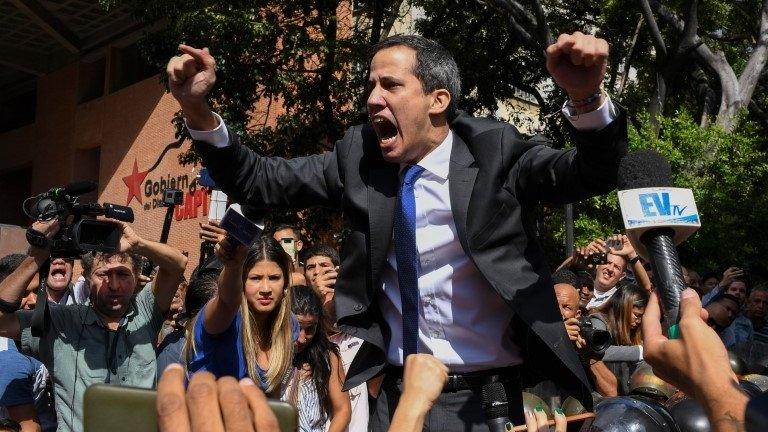
- Published7 January 2020
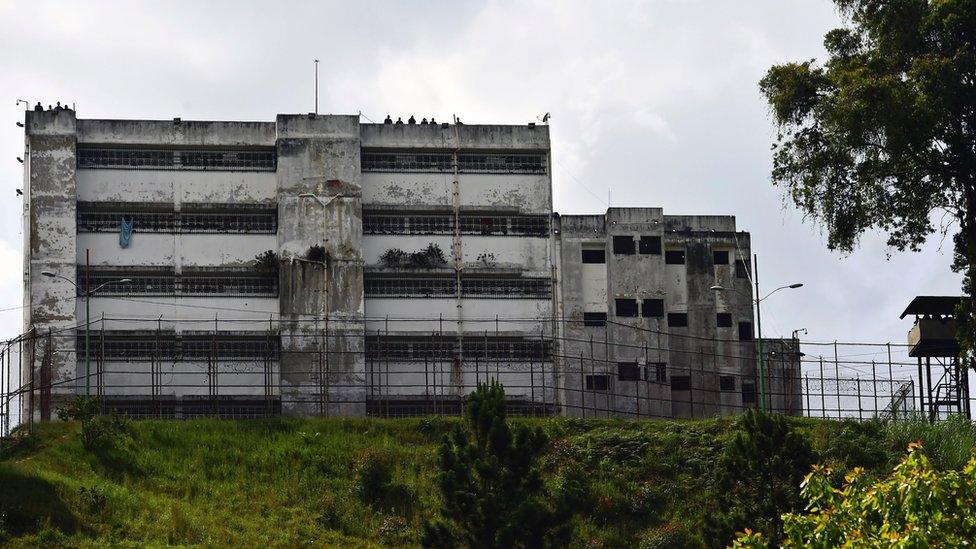
- Published6 January 2020
